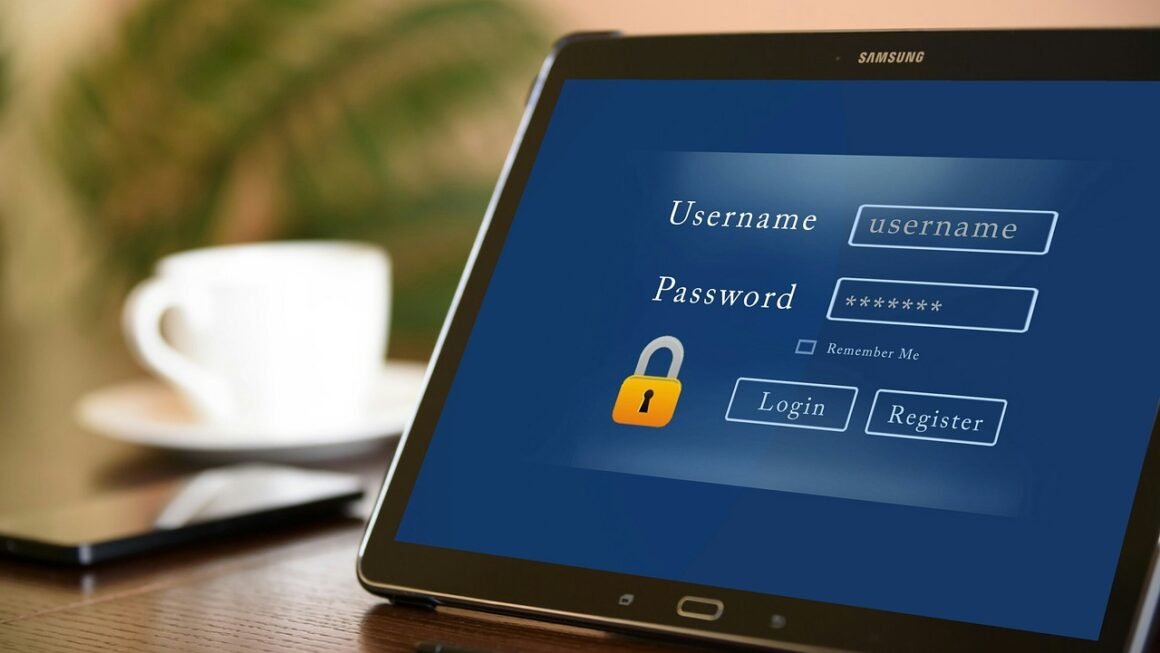In today’s digital age, our lives are inextricably linked to the internet. From managing finances to storing precious memories, we rely on computers and mobile devices. However, this connectivity comes with inherent risks. Cyber threats are constantly evolving, making robust antivirus software an indispensable tool for safeguarding our digital lives. This comprehensive guide explores everything you need to know about antivirus software, helping you choose the best protection for your needs.
Understanding Antivirus Software
What is Antivirus Software?
Antivirus software, also known as anti-malware, is a program designed to detect, prevent, and remove malicious software (malware) from your computer or device. Malware includes viruses, worms, trojan horses, ransomware, spyware, adware, and rootkits. These malicious programs can damage your system, steal your personal data, or even hold your files hostage for ransom.
How Does Antivirus Software Work?
Antivirus software employs various techniques to identify and combat threats:
- Signature-Based Detection: This is the traditional method, where the software compares files and programs against a database of known malware signatures. If a match is found, the software flags the file as malicious.
- Heuristic Analysis: This more advanced technique analyzes the behavior of files and programs to identify suspicious activities, even if the file’s signature is not yet known. It looks for actions that are common in malware, such as attempts to modify system files or connect to suspicious websites.
- Real-Time Scanning: This feature continuously monitors your system for threats, scanning files as they are accessed, downloaded, or executed.
- Cloud-Based Scanning: Some antivirus solutions use cloud-based databases to identify threats. This allows them to access the latest malware information and reduce the load on your local system.
Why is Antivirus Software Important?
Without antivirus software, you are vulnerable to a wide range of cyber threats that can have serious consequences. Here’s why it’s essential:
- Protection Against Malware: Antivirus software is your first line of defense against viruses, worms, trojans, and other malicious programs.
- Data Security: It helps protect your personal data, such as passwords, financial information, and sensitive documents, from being stolen by hackers.
- System Performance: Some malware can slow down your computer or cause it to crash. Antivirus software can help prevent these issues and keep your system running smoothly.
- Financial Protection: Ransomware attacks can cripple your business or personal finances by encrypting your files and demanding a ransom for their release. Antivirus software can help prevent these attacks.
- Peace of Mind: Knowing that you have robust antivirus protection can give you peace of mind and allow you to use your computer and mobile devices with confidence.
Choosing the Right Antivirus Software
Factors to Consider
Selecting the right antivirus software depends on your specific needs and priorities. Here are some key factors to consider:
- Detection Rate: This refers to the software’s ability to accurately identify and block malware threats. Look for independent test results from reputable sources like AV-Test and AV-Comparatives.
- Performance Impact: Some antivirus programs can significantly slow down your computer. Choose software that has a minimal impact on system performance. Read reviews and check benchmark tests.
- Features: Consider the features that are most important to you, such as real-time scanning, web protection, email protection, firewall, and parental controls.
- Ease of Use: The software should be easy to install, configure, and use, even for non-technical users. A user-friendly interface is crucial.
- Price: Antivirus software is available in a wide range of price points, from free to premium subscriptions. Choose a plan that fits your budget and provides the features you need.
- Customer Support: Ensure the vendor offers reliable customer support in case you encounter any issues. Check for options like phone, email, and live chat support.
Free vs. Paid Antivirus Software
Many reputable antivirus companies offer both free and paid versions of their software. Here’s a comparison:
- Free Antivirus: These programs typically offer basic protection against malware, including real-time scanning and signature-based detection. They may lack advanced features like web protection, email protection, and ransomware protection. Example: Windows Defender, Avast Free Antivirus.
- Paid Antivirus: These programs offer comprehensive protection against a wider range of threats, including advanced features and enhanced support. They often include features like firewall, parental controls, and VPN. Example: Norton 360, McAfee Total Protection, Bitdefender Total Security.
Practical Example: If you are a basic user who primarily uses your computer for browsing the web and checking email, a free antivirus program may be sufficient. However, if you handle sensitive data or frequently download files from the internet, a paid antivirus program is recommended for enhanced protection.
Top Antivirus Software Providers
Here are some of the leading antivirus software providers:
- NortonLifeLock: Known for its comprehensive protection and wide range of features.
- McAfee: Offers robust security solutions for both home and business users.
- Bitdefender: Consistently ranks high in independent tests for its detection rates and performance.
- Kaspersky: Provides excellent protection against malware, although its reputation has been affected by concerns about its ties to the Russian government. (Consider regional availability and data privacy policies when making a choice.)
- Avast: A popular free antivirus program that also offers paid versions with advanced features.
Installing and Configuring Antivirus Software
Installation Process
Installing antivirus software is typically a straightforward process:
Configuration Tips
To get the most out of your antivirus software, configure it properly:
- Enable Real-Time Scanning: This is the most important feature to enable. Real-time scanning constantly monitors your system for threats.
- Schedule Regular Scans: Schedule regular full system scans to detect any malware that may have slipped through the real-time scanner. A weekly or monthly scan is generally recommended.
- Enable Web Protection: This feature protects you from malicious websites and phishing attacks.
- Enable Email Protection: This feature scans your email for malicious attachments and links.
- Configure Automatic Updates: Set the software to automatically update its virus definitions to ensure you have the latest protection.
- Adjust Scan Sensitivity: Adjust the scan sensitivity to balance protection and performance. A higher sensitivity may result in more false positives, while a lower sensitivity may miss some threats.
Maintaining Your Antivirus Software
Antivirus software is not a one-time solution. It requires ongoing maintenance to remain effective:
- Keep the software up to date: Regularly update the software to ensure you have the latest virus definitions and security patches.
- Run regular scans: Schedule regular full system scans to detect any malware that may have slipped through the real-time scanner.
- Monitor alerts: Pay attention to any alerts or warnings from the software and take appropriate action.
- Stay informed about new threats: Keep up to date on the latest cyber threats and security best practices.
Addressing Common Concerns and Misconceptions
Does Antivirus Software Guarantee 100% Protection?
No. While antivirus software provides a crucial layer of protection, it cannot guarantee 100% protection against all threats. New malware is constantly being developed, and it can take time for antivirus vendors to create and distribute updates to detect it.
Will Antivirus Software Slow Down My Computer?
Some antivirus software can have a noticeable impact on system performance, especially during scans. However, modern antivirus solutions are designed to minimize this impact. Choose software that has a reputation for being lightweight and efficient.
Do I Need Antivirus Software if I Use a Mac?
Yes. While Macs have historically been less vulnerable to malware than Windows PCs, they are not immune. Mac malware is becoming increasingly common, so it’s important to protect your Mac with antivirus software.
Can I Run Multiple Antivirus Programs at the Same Time?
It is generally not recommended to run multiple antivirus programs at the same time, as they can conflict with each other and cause performance issues. Choose one reputable antivirus program and stick with it.
What Should I Do if I Suspect My Computer is Infected?
If you suspect your computer is infected with malware, take the following steps:
Conclusion
In the ever-evolving landscape of cyber threats, antivirus software remains an essential tool for protecting your digital security. By understanding how antivirus software works, choosing the right solution for your needs, and configuring it properly, you can significantly reduce your risk of becoming a victim of malware. Remember that antivirus software is just one part of a comprehensive security strategy. It’s also important to practice safe browsing habits, keep your software up to date, and be wary of suspicious emails and links. Stay vigilant, stay protected, and enjoy a safer digital experience.



